Related Research Articles
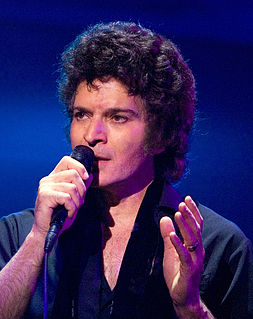
Gino Vannelli is a Canadian rock singer and songwriter who had several hit songs in the 1970s and 1980s. His best-known singles include "I Just Wanna Stop" (1978), "Living Inside Myself" (1981) and "Wild Horses" (1987).
"What Hurts the Most" is a song written by American songwriter Jeffrey Steele and English songwriter Steve Robson. Initially recorded by country music artist Mark Wills in 2003 on his album And the Crowd Goes Wild, it was covered by Bellefire a year later. The first version to be released as a single was by pop singer Jo O'Meara in 2005, from the album Relentless. Later that year, country band Rascal Flatts covered the song as well, releasing it as the first single from the 2006 album Me and My Gang, topping the U.S country and adult contemporary charts with it. German band Cascada later had international chart success with the song in 2007. It was also covered by Eden in 2008.

"I Just Called to Say I Love You" is a ballad written, produced, and performed by American R&B singer and songwriter Stevie Wonder. It remains Wonder's best-selling single to date, having topped a record 19 charts.

"Return of the Mack" is a song written and recorded by the British R&B singer Mark Morrison with backing vocals from Angie Brown. The video was released in the United Kingdom in March 1996 and in the United States in February 1997, attracting 110 million views on YouTube by August 2020. It topped the UK Singles Chart a month after its release, then became a European and Australian hit during the middle of the year. In the United States, it reached number 2 on the Billboard Hot 100 and went Platinum.

"Love to Hate You" is a 1991 song by English synth-pop duo Erasure. It was released as the second single from their fifth studio album, Chorus. Written by band members Vince Clarke and Andy Bell, it is an electronic dance track clearly inspired by disco music. The synthesizer melody in the chorus is an interpolation of the string break from American singer Gloria Gaynor's disco-era classic "I Will Survive". The duo also recorded a Spanish version of the song, called "Amor y Odio", and one in Italian called "Amo Odiarti". The single was released by Mute Records in the UK and Sire Records in the US. It peaked at number four on the UK Singles Chart and became a Top 10 hit in Austria, Denmark, Finland, Greece, Ireland and Sweden.
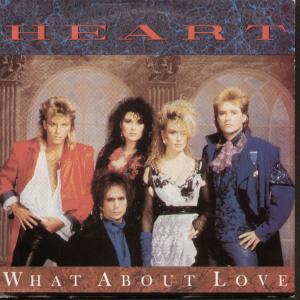
"What About Love" is a song originally recorded by Canadian rock group Toronto but is best known for the 1985 release by the American rock group Heart. The song was Heart's "comeback" single. It was the first Heart track to reach the top 40 in three years, and their first top 10 hit in five. It was released as the first single from the band's self-titled 1985 album, Heart, as well as their first hit single on their new record label, Capitol Records. Grace Slick and Mickey Thomas, co-lead vocalists of Starship at the time, provide additional background vocals on the song.

"You Send Me" is a song written and originally recorded by American singer Sam Cooke, released as a single in 1957 by Keen Records. Produced by Bumps Blackwell and arranged and conducted by René Hall. The song, Cooke's debut single, was a massive commercial success, becoming a No. 1 hit on both Billboard's Rhythm & Blues Records chart and the Billboard Hot 100.
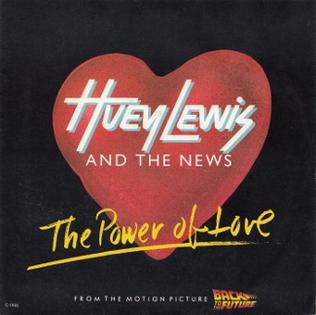
"The Power of Love" is a 1985 single by Huey Lewis and the News, written for and featured in the 1985 blockbuster film Back to the Future. It gave the band their first number-one hit on the U.S. Billboard Hot 100 and their second number-one hit on the U.S. Top Rock Tracks chart; and as a double-A side, it was a top ten hit on the Official UK Singles Chart, where it appeared on UK editions of the band's fourth studio album, Fore!.
"Love Hurts" is a song written and composed by the American songwriter Boudleaux Bryant. First recorded by the Everly Brothers in July 1960, the song is also well known from a 1975 international hit version by the Scottish hard rock band Nazareth and in the UK a top five hit in 1975 by the English singer Jim Capaldi.

"Cry" is a song recorded by American country music singer Faith Hill. it was the first single from her fifth studio album of the same name (2002). The song was originally written and recorded by singer-songwriter Angie Aparo for his 1999 album, The American. In 2003, at the 45th Annual Grammy Awards, Hill won the Grammy Award for Best Female Country Vocal Performance for "Cry", marking her second win in the category.
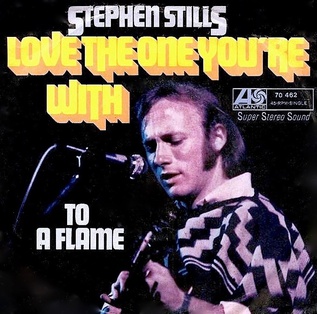
"Love the One You're With" is a song by folk rock musician Stephen Stills. It was released as the lead single from his debut self-titled studio album in November 1970. The song, inspired by a remark Stills heard from musician Billy Preston, became his biggest hit single, peaking at No. 14 on the Billboard Hot 100 in early 1971. David Crosby and Graham Nash, Stills' fellow members of Crosby, Stills & Nash, provide background vocals on the song. The song was also covered by a number of artists, notably the Isley Brothers, Bucks Fizz and Luther Vandross.
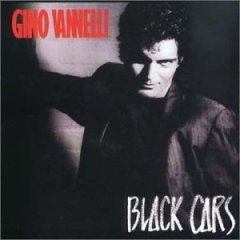
Black Cars is the eighth album by Gino Vannelli. Produced with his brothers Joe and Ross, the album yielded two hit singles: the title track and "Hurts to Be in Love".

Powerful People is the title of both the second studio album of Canadian singer Gino Vannelli, and the sixth track on this album. The album was released in 1974, and was produced by Gino and his brother Joe Vannelli. Herb Alpert is credited as associate producer.
Joe Vannelli is a Canadian musician, composer and record producer. He was credited on most records of his brother, Gino Vannelli, and in collaboration with youngest brother Ross Vannelli, the three have won many awards.

Brother to Brother is the sixth studio album by Canadian singer Gino Vannelli. Despite its success - the biggest of Vannelli's career - it was also his last for A&M Records. The album was released in 1978 and featured "I Just Wanna Stop", Vannelli's highest-charting single to date in both the US and Canada, where the single reached #4 and #1 respectively. Two other singles were released from the LP, "Wheels of Life", and "The River Must Flow".
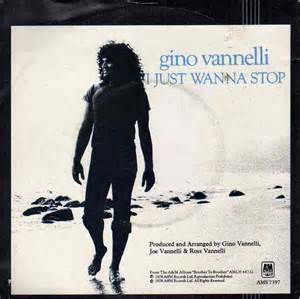
"I Just Wanna Stop" is a song by Canadian singer/songwriter Gino Vannelli. Released as a single in August 1978, the song is his biggest hit single to date, reaching number one in his native Canada and number four on the U.S. Billboard Hot 100. It appears on his sixth album, Brother to Brother. The song was produced by the three brothers Gino, Joe and Ross Vannelli, and written by Ross.

"Living Inside Myself" is a song written and performed by Canadian singer-songwriter Gino Vannelli. It appears on his seventh album, Nightwalker. The song was produced by the three brothers Gino, Joe, and Ross Vannelli.

"This Summer's Gonna Hurt like a MotherFucker" is a song performed by American pop rock band Maroon 5. The fourth single from the album, it followed the reissue deluxe edition of the band's fifth studio album V, on May 15, 2015. Musically, the song has been described as having a "synthpop sound", while incorporating an arena rock style.

Anthology is a compilation album by country pop singer Juice Newton. It was originally released by Renaissance Records on October 13, 1998. The album covers her career from 1975 to 1989 and features 19 songs taken from her albums Juice Newton & Silver Spur, Juice, Quiet Lies, Can't Wait All Night, Old Flame, Emotion, and Ain't Gonna Cry. However, it includes the 1975 take of "The Sweetest Thing " from the first RCA album, not the 1981 hit version from Juice.

"Truth Hurts" is a song released by American singer and rapper Lizzo. It was originally released on September 19, 2017, by Nice Life Recording Company and Atlantic Records, but then re-released as a radio single in 2019. It was written by Lizzo, Jesse Saint John, Steven Cheung, and Ricky Reed, the latter two having co-produced the track.
References
- ↑ "RPM Top 100 Singles - October 19, 1985" (PDF).
- ↑ "Gino Vannelli - Chart history". Billboard. Retrieved 2014-03-26.